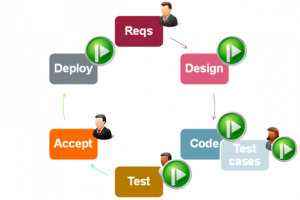Computers are a key part of modern business life but the convenience they offer comes at a price in terms of the disruption caused if systems fail. The consequences of failure can be severe, particularly if healthcare, banking and other systems involving sensitive data are involved. If you need help with the content of your website, weather its off page or on page then contact a Belfast SEO company at sites like https://www.rycomarketing.co.uk/digital-marketing-belfast-northern-ireland/seo-belfast/

To ensure that the software is reliable and safe from problems therefore, it’s important that companies use a software testing service. This not only helps with the quality of the software itself but can avoid potential security and other issues further down the line.
It’s easy to think of
Improving security isn’t the only reason for thorough software testing, but it is becoming a more and more important aspect of the process. Major security breaches inevitably make the headlines, and they can cause serious damage to the reputation of the businesses involved.
Enterprises and governments are taking cyber security increasingly seriously. The UK government recently announced that it was investing £1.9 billion in a new security strategy –http://betanews.com/2016/11/01/uk-cyber-security-strategy/). While it’s impossible to create a system that is 100 percent secure, it is vital in any development of new software to recognise the risks and take steps to minimise them.
Testing is an important part of this and independent have an important role to play in keeping systems secure. New methods include the use of verification tools that can examine the individual components of a program. This makes for a more manageable verification process that can easily be scaled to adapt to larger developments.
While tools can mathematically prove there are no errors, it can’t determine the quality and usability of the software, which is something that still needs to be done through more traditional techniques.
New methods
A new generation of testing systems is seeking to produce standard methodologies that will ensure consistency of testing across a range of projects. Thanks to collaboration between the academic sector and industry, this will help ensure compliance with the standards required for critical infrastructure projects and control systems.
Increased automation should also help to reduce the overall cost of testing, which is historically, a labour intensive exercise. Whilst it won’t eliminate the need for human testing altogether, it will allow testers to focus on aspects, such as usability and interface design, where they can have most impact.
